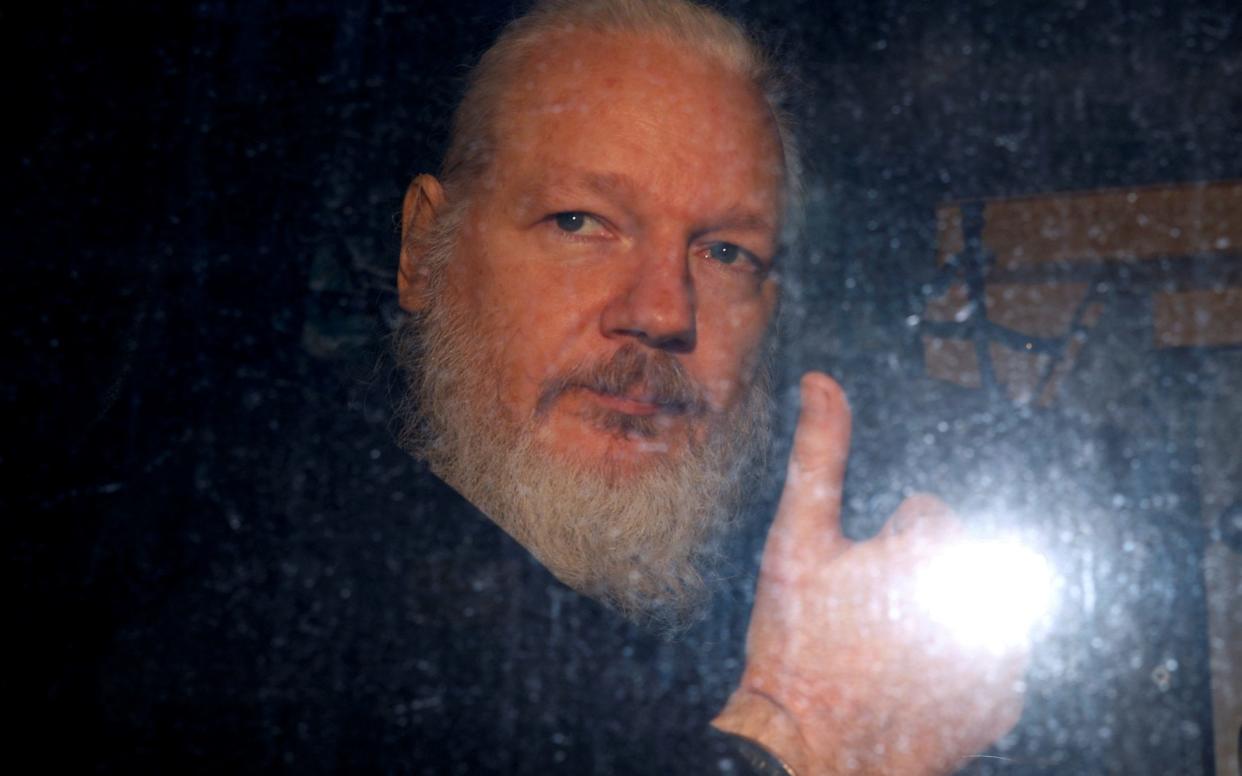Jeremy Corbyn demands Government opposes Julian Assange's extradition to US

Jeremy Corbyn has called on the Government not to extradite Julian Assange, saying he had exposed evidence of atrocities in Iraq and Afghanistan.
The 47-year-old WikiLeaks founder spent his first night in custody after being convicted on Thursday of breaching bail following a dramatic arrest at the Ecuadorian embassy in London, where he had been holed up for seven years.
He is facing extradition to the US on charges of conspiring to break into a classified government computer which, on conviction, could attract a maximum jail sentence of five years, according to the US Department of Justice.
Almost 12 hours his arrest, the Labour leader tweeted: "The extradition of Julian Assange to the US for exposing evidence of atrocities in Iraq and Afghanistan should be opposed by the British government."
He accompanied his social media post with a video tweeted by shadow home secretary Diane Abbott, which she said showed leaked Pentagon footage of a 2007 air strike in Iraq which implicated American armed forces in the killing of civilians and two journalists.
He was retweeted by Assange supporter Pamela Anderson, who once described Mr Corbyn as "clearly a decent and fair man".
An individual alleged to have links to Assange was arrested on Thursday night while trying to leave Ecuador, officials in the country said.
The man, said to be Swedish software developer Ola Bini, was held at Quito airport as he prepared to board a flight bound for Japan on Thursday.
Ecuador's interior minister Maria Paula Romo said a person had been arrested for allegedly conspiring against the country's government.
Ms Romo told CNN's Spanish service: "We have information on how WikiLeaks would have intervened in domestic politics.
"Today a collaborator close to Julian Assange was arrested for investigative purposes. He has been living in Ecuador and was preparing to travel to Japan."
British software developer Martin Fowler said he was "very concerned to hear that my friend and colleague @olabini has been arrested in Ecuador".
A tweet posted under the Twitter handle @olabini on Thursday referred to a press conference given by Ms Paula Romo in which she claimed there were "Russian hackers in Ecuador".
"Very worrisome news - this seems like a witch hunt to me," said another tweet on the account.
The US accuses Assange of assisting Chelsea Manning, a former US intelligence analyst, in breaking a password that helped her infiltrate Pentagon computers.
Addressing the House of Commons on Thursday, Ms Abbott said Assange was in the "cross-hairs of the US administration" over his whistle-blowing activities.
Ms Abbott said: "It is this whistle-blowing into illegal wars, mass murder, murder of civilians and corruption on a grand scale, that has put Julian Assange in the cross-hairs of the US administration.
"It is for this reason that they have once more issued an extradition warrant against Mr Assange."
In response, Home Secretary Sajid Javid said: "Why is it whenever someone has a track record of undermining the UK and our allies and the values we stand for, you can almost guarantee that the leadership of the party opposite will support those who intend to do us harm?
"You can always guarantee that from the party opposite."
Assange, with grey hair tied into a pony tail and sporting a long beard, was described by a judge at a packed Westminster Magistrates' Court as behaving like a "narcissist", as he advised him to "get over to the US" and "get on with your life".
Assange spent almost seven years in the embassy, where he sought political asylum in 2012 when he failed in his legal battle against extradition to Sweden, where he was wanted over two separate allegations, one of rape and one of molestation.
In May 2017, Sweden's top prosecutor dropped the long-running inquiry into a rape claim against Assange, which he has always denied.
Sign up for your essential, twice-daily briefing from The Telegraph with our free Front Page newsletter.

